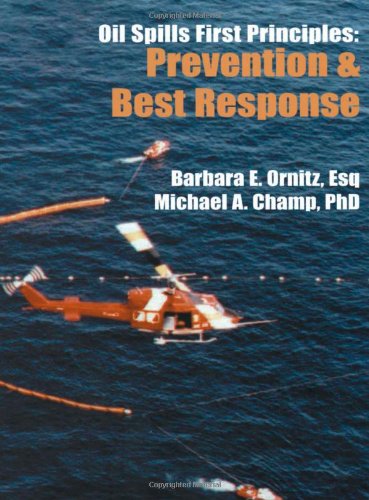

Most ebook files are in PDF format, so you can easily read them using various software such as Foxit Reader or directly on the Google Chrome browser.
Some ebook files are released by publishers in other formats such as .awz, .mobi, .epub, .fb2, etc. You may need to install specific software to read these formats on mobile/PC, such as Calibre.
Please read the tutorial at this link. https://ebooknice.com/page/post?id=faq
We offer FREE conversion to the popular formats you request; however, this may take some time. Therefore, right after payment, please email us, and we will try to provide the service as quickly as possible.
For some exceptional file formats or broken links (if any), please refrain from opening any disputes. Instead, email us first, and we will try to assist within a maximum of 6 hours.
EbookNice Team

Status:
Available4.6
15 reviewsOver the past 30 years, billions of US dollars have been spent in R&D planning, response and clean up of oil spills. All of these efforts have focused on achieving Best Response. The concept of time periods of ''Technology Windows-of-Opportunity'' for a given response and clean up technology has developed from the leadership and wisdom of researchers and responders from many nations using modeling of the weathering of spilled oil and technology effectiveness. The Windows-of-Opportunity strategy provides a scientific basis for policy and decision-making in oil spill planning, response, and training.
A global paradigm shift is needed to more effectively utilize and expedite the application of lessons learned in both prevention and clean up. Recognition of economic, political, and legal benefits accruing from environmental protection is good for business and critical for sustainable shipping.